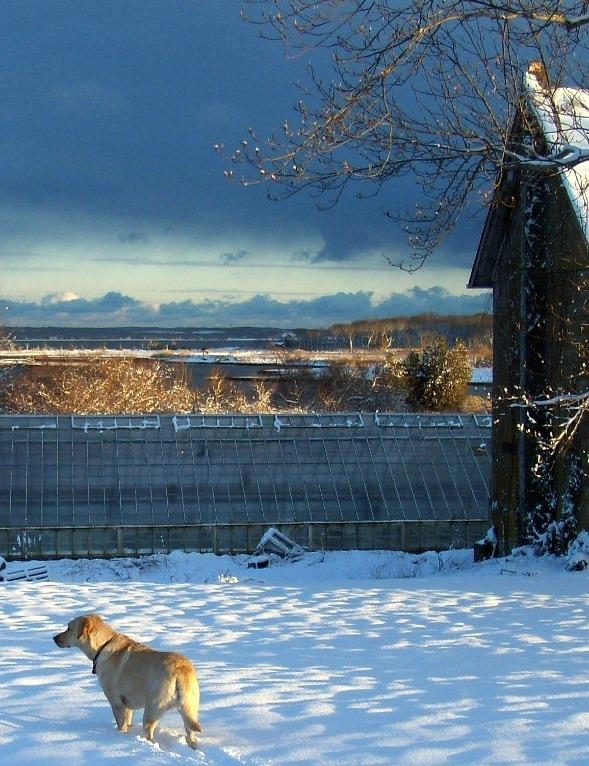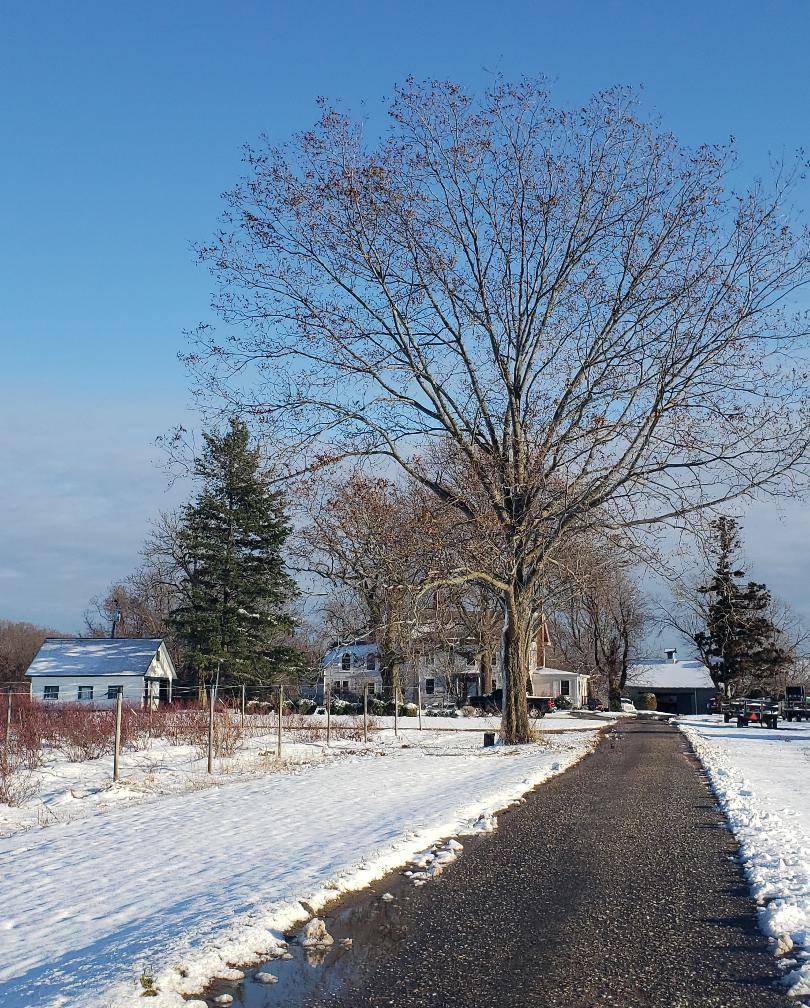A Short Winter's Nap
- Maria Orlando Pietromonaco
- Mar 21, 2024
- 3 min read
For most of us December 26th marks the end of holiday chaos and commitments, the end of a year we can’t believe has gone by. But for some of us it also marks the end of something much more sacred – the closing of farm
stands across Long Island.
As the days roll by after Thanksgiving the threat looms near. And just weeks later it happens: shelves are cleared, ropes barricade entranceways, signs that say “See You In the Spring” are hung with great care, and piles of neatly stacked firewood for sale rest where my succulent peaches and snappy string beans used to be.
Equal parts brown and desolate, farms across the east end morph into abandoned homesteads…albeit temporarily.
Now I can’t be the only one who wonders where all the farmers vanish to during this brief hiatus. Maybe I am. Are they nestled on hammocks under a warm tropical sun somewhere far away? Are they resting their weary heads and bodies in front of a crackling fire at home? Or are they toiling away as fast and furious as ever, preparing for the onslaught of new harvest and impatient patrons? There was only one way to find out.
I reached out to Jon Wickham, a product of one of the longest farming legacies on the North Fork, to see how the family behind Wickham’s Fruit Farm spent their off-season. Only I found out the winter interlude is actually more “on” than “off.”
In season, the 300-acre 13th generation farm is flourishing with beautiful fruit and vegetables. Peach, apple, plum, and apricot orchards are thick with select varieties ready for picking, while berries and produce are nurtured until ripe. All of this makes for a flurry of activity over the frosty few months in preparation for spring showtime.
“During the winter, we prune the fruit trees. Then we shred the branches with a machine, to add organic material to the soil for next season,” said Jon.
“We also spend part of the winter planning several years ahead for new plantings of trees in the orchard. We choose which new apple varieties to plant, and we participate in the development of new varieties, so the customers get better-tasting fruit down the road. One of the reasons that apples taste better today than they did 40 years ago is that the growers invest time and money every year into coming up with better apple varieties.”
I did ask what they did in their leisure time once the doors were closed to the public. To this he answered an off-the-record “LOL.”
He continued: “During part of the off season, we do maintenance, like reglazing the greenhouses, and maintaining the hedgerows. I think a lot of what people value about nature and the outdoors in fact comes not from true wilderness but rather from carefully managed land. For example, when we thin out the underbrush from a hedgerow with a bulldozer, we cut down on the habitat for deer, but allow habitat for desirable animals and plants. we also steam-sterilize the soil, which is an age-old, effective way to remove pests before the growing season.”
For the record, Jon did admit they do squeeze in one of their favorite activities. “What we like to do about once a week is enjoy a dinner from Jan's Chinese Food by the movie theater in Mattituck. Jan's has wonderful food and wonderful people.”
So here we are, suspended between the long winter’s nap and the awakening of buds and beaks. We can only sit back and await the spring season openings – and asparagus - in May.




















Comments